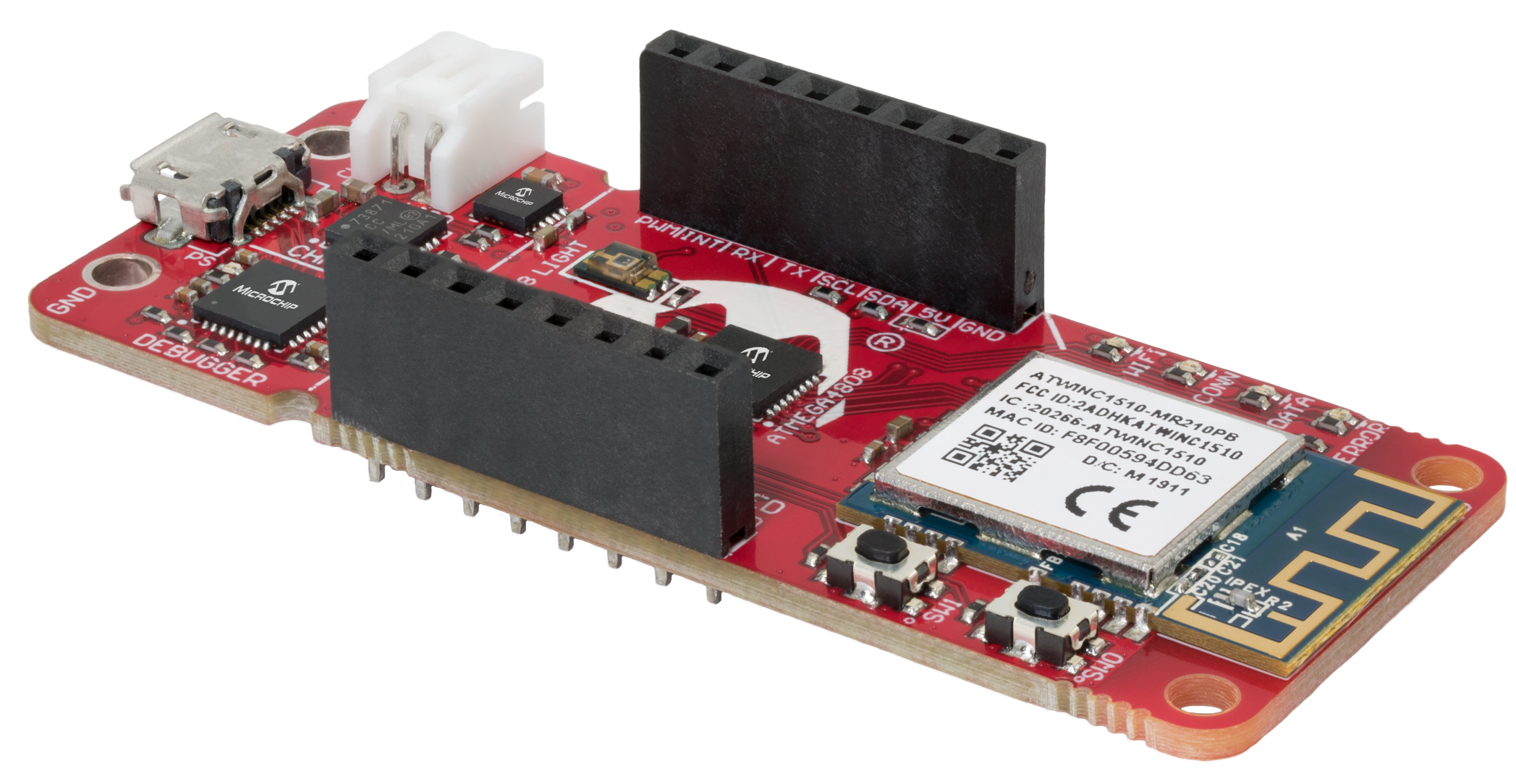Preface
Important: This document is
applicable for two different products: AVR-IoT WG (AC164160) and AVR-IoT WA
(EV15R70A). Both variants are referred to as AVR-IoT Wx in this document, and both
products have identical hardware. AVR-IoT WG is preconfigured to send data through
Google Cloud IoT Core, and AVR-IoT WA is preconfigured to send data through Amazon
Web Services (AWS). Both products can be reconfigured to send data to different
cloud providers.
Tip: For the AWS variant of
the board (WA), see the Microchip IoT Developer Guides for
AWS for a list of
tutorials describing how to connect the board to an AWS account, and how to design
in the cloud through various examples.
Introduction
The AVR-IoT Wx Development Board is a small and
easily expandable demonstration and development platform for IoT solutions, based on the
AVR® microcontroller architecture using Wi-Fi® technology. It is designed to demonstrate that
the design of a typical IoT application can be simplified by partitioning the problem
into three blocks:
- Smart – represented by the ATmega4808 microcontroller
- Secure – represented by the ATECC608A secure element
- Connected – represented by the ATWINC1510 Wi-Fi controller module
- The on-board debugger (PKOB nano) supplies full programming and debugging support through Atmel Studio/MPLAB® X IDE. It also provides access to a serial port interface (serial to USB bridge) and two logic analyzer channels (debug GPIO).
- The on-board debugger enumerates on the PC as a mass storage interface device for easy ‘drag-and-drop’ programming, Wi-Fi configuration, and full access to the microcontroller application Command Line Interface (CLI)
- A mikroBUS™ socket allows for the ability to expand the board capabilities with the selection from 450+ sensors and actuators options offered by MikroElektronika (www.mikroe.com) via a growing portfolio of Click boards™
- A light sensor used to demonstrate published data
- Microchip MCP9808 high-accuracy temperature sensor used to demonstrate published data
- Microchip MCP73871 Li-Ion/LiPo battery charger with power path management

- MPLAB® X IDE and Atmel Studio - Software to discover, configure, develop, program, and debug Microchip microcontrollers.
- Application Code on GitHub - Get started with application code.
- AVR-IoT WG website - Find schematics, design files, and purchase the board. Set up for Google Cloud IoT Core.
- AVR-IoT WA website - Find schematics, design files, and purchase the board. Set up for Amazon Web Services.
